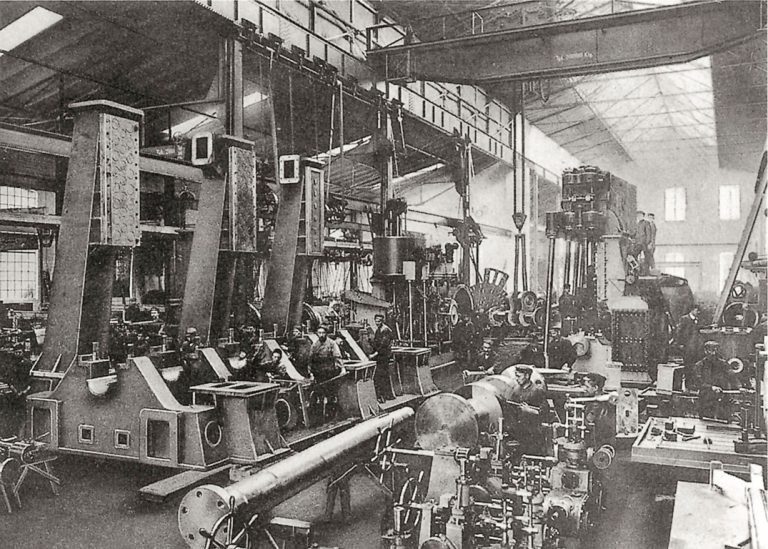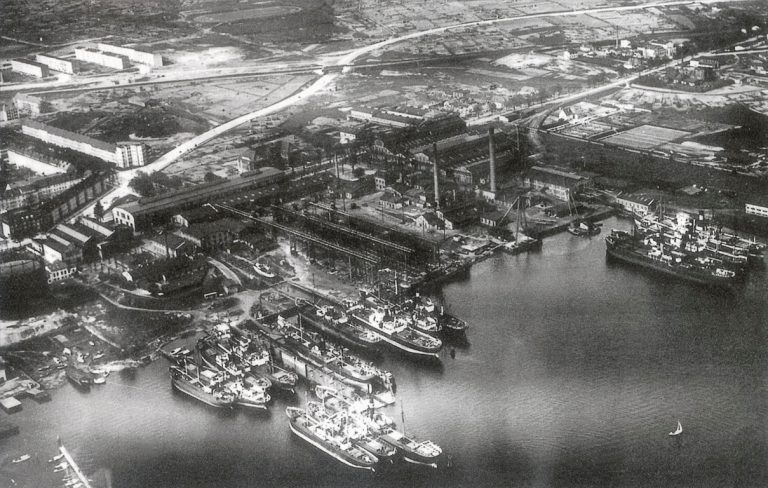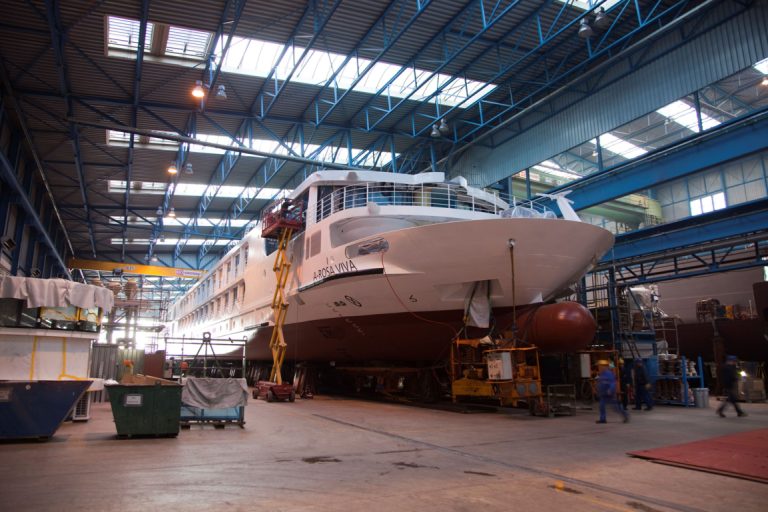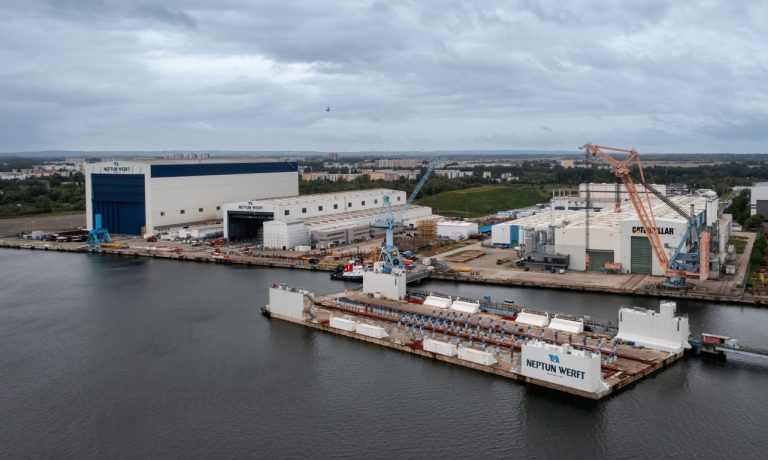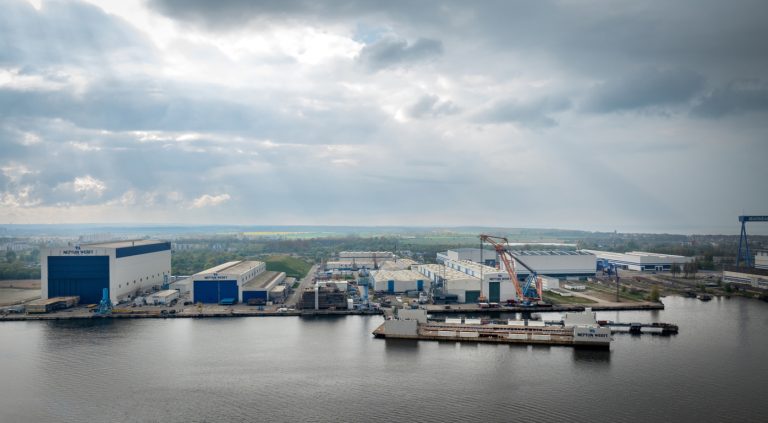Neptun Werft: 175 Years of Shipbuilding Excellence
In the heart of the coastal region of Rostock, overlooking the Warnow River, stands one of Germany’s oldest and most emblematic shipyards: Neptun Werft.
Founded in 1850, this historic industrial enterprise has witnessed technological revolutions, geopolitical crises, global economic transformations, and multiple production transitions—always remaining true to its core mission: building cutting-edge ships. In 2025, Neptun Werft celebrated its 175th anniversary, a milestone that goes far beyond a mere chronological recurrence, serving as an opportunity to reflect on the importance of the European shipbuilding industry, the value of skilled labor, and the ability to innovate while remaining firmly rooted in the local territory.
NEPTUN WERFT 1910
NEPTUN WERFT 1920
In its 175 years of activity, Neptun Werft has built more than 1,600 vessels, including merchant ships, ferries, military units, gas carriers, research vessels, and, more recently, modern river cruise ships. Added to this impressive figure are countless maintenance, repair, and refurbishment projects involving ships from all over the world. Throughout its evolution, the shipyard has managed to blend traditional craftsmanship with advanced technology, maintaining production quality as its hallmark. Today, with more than 600 highly skilled employees, Neptun Werft is one of the leading European players in the river cruise segment and a major industrial and employment hub for the city of Rostock and the entire Mecklenburg-Vorpommern region.
Demonstrating its versatility, the shipyard’s current production portfolio extends well beyond river cruise vessels. Neptun Werft is now a key supplier to major cruise industry players, especially Meyer Werft—of which it has been a part since 1997—for whom it manufactures highly complex floating engine room modules for large ocean-going cruise ships. These modules, essentially floating power plants, are designed and built using state-of-the-art technologies and assembled to meet the highest standards of safety and efficiency. At the same time, the shipyard continues to excel in the design and construction of specialized ships, such as dual-fuel ferries, low-emission gas tankers, and research vessels—sectors where customization, reliability, and technical innovation are critical factors.
NEPTUN WERFT_2009_
NEPTUN_WERFT_2023
In recent years, Neptun Werft has embarked on a new phase of development, focusing on the challenges of the energy transition and environmental sustainability. Notably, the shipyard is preparing to enter the emerging offshore converter platform market—critical infrastructure for transforming and transmitting electricity generated by offshore wind farms. This strategic sector, which is rapidly expanding in Europe, demands advanced engineering expertise and strong industrial coordination capabilities. Neptun Werft has demonstrated its aptitude in both areas, thanks to decades of experience in managing complex projects and its solid network of technical and scientific partners.
Further underlining its commitment to a sustainable future, the shipyard actively participates in research projects aimed at developing zero-emission technologies, particularly exploring the application of fuel cells in maritime propulsion systems. These technologies are still in the experimental phase but are expected to play a central role in the future of commercial and cruise navigation. This commitment to sustainability is also reflected in the company’s human resources policies: with the introduction of a 35-hour workweek in 2024, Neptun Werft made a clear statement about improving work-life balance, employee well-being, and innovating labor models within the heavy industry sector.
To mark its anniversary, the shipyard organized a series of celebrations in June at its Rostock facility. Among them, an official ceremony brought together representatives from the economic, political, and institutional spheres, while on the same day, an open event was held for all employees and their families. This celebration served as a heartfelt tribute to the daily commitment and dedication of the people who, over the decades, have contributed to the success and continuity of the shipyard.
NEPTUN WERFT 2024
Today, Neptun Werft stands as a tangible example of how industrial tradition can evolve into a platform for innovation. Its ability to anticipate market trends, invest in workforce training, integrate sustainability with productivity, and develop cutting-edge technological solutions makes it a model for the entire European maritime sector. Its strong ties with the city of Rostock and the local community remain a defining aspect of its identity, contributing to the economic and social cohesion of a region that has reinvented itself around its port and maritime infrastructure.
Looking ahead, the challenge will be to consolidate Neptun Werft’s role in an increasingly global and competitive industrial landscape, while continuing to enhance its roots and human capital. The coming years will see the shipyard engaged on multiple fronts: the construction of new types of vessels, expansion of international partnerships, implementation of green technologies, and further digitalization of production processes. With a clear vision and proven experience, Neptun Werft is ready to write the next chapter in its long and illustrious history.
Don’t miss news, updates, and reviews about the world of cruising on Cruising Journal.

